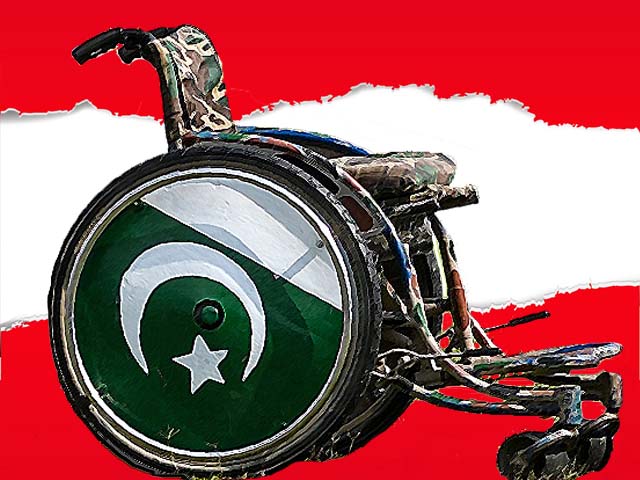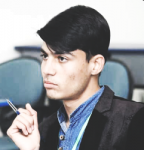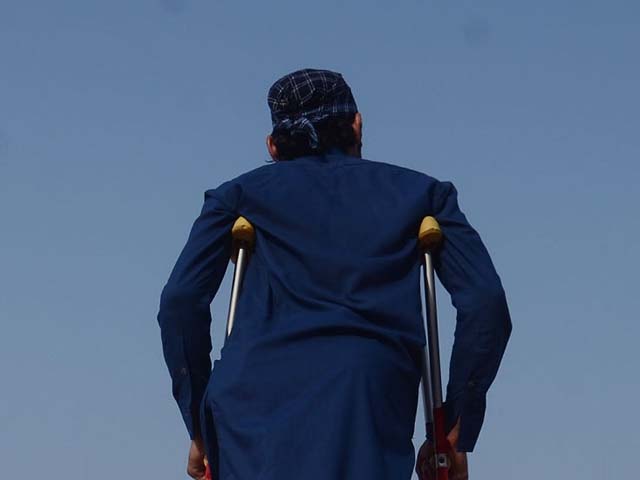
Locked wheelchairs: A look into Balochistan's dilapidated healthcare system
The condition of the CCU, reserved for critical patients, exemplifies the sad state of affairs in basic healthcare
"The wheelchairs are locked!"
exclaimed one of the employees of Quetta's dilapidated Civil Hospital as my ailing grandmother desperately waited in the car parked outside the medical superintendent's (MS) office at the hospital. In a state of panic, we started running in search of a wheelchair or a stretcher so that we could take her to the Cardiac Care Unit (CCU) ward but we failed to locate either. When we tried to reason with the employee again, he lamented that the staff is forced put everything under lock and key since people end up taking wheel chairs home with them.
I was lucky that I knew Razaur Rehman, the president of Quetta’s Press Club and that he had learnt about my grandmother’s serious condition. He immediately, called the deputy MS at the hospital after which a wheelchair was unlocked and subsequently made available for us. In a flash, we were next to the car and helping my grandmother on to the wheelchair to transport her to the critical care unit or the CCU. She was still suffering from what seemed to be a heart attack and was constantly complaining about chest and shoulder pain. Fortunately, I saw Dr Fazal Panezai, a well-known cardiac surgeon standing outside his clinic.
I begged him to come see my grandmother and thought after a check up and diagnosis from Dr Panezai, we will soon be able to offer some relief to my grandmother. That was not the case, as the doctor prescribed an ECG to properly diagnose the cause behind the pain. The only junior doctor available at the hospital gave us dismal news; there were no ECG technicians available at night. It was almost 10:30 pm when we learned that this was a problem that the hospital staff faces regularly despite MS Dr Azam Bugti claiming that the hospital employs 7,000 staff members out of which over 1,000 are doctors.
This is when my father Syed Ali Shah, an eminent journalist in Quetta, called Rehman who once again requested the deputy MS to help us. Subsequently, a technician was summoned from another ward to conduct the ECG. After reviewing the test results, Dr Panezai confirmed that my grandmother did indeed have a heart attack and that she needed to be kept overnight for observation. My grandmother was not happy and refused to stay back, to the point where my father and I had to pacify her by telling her we will leave within the hour, knowing fully well that that was not the case.
“I cannot breathe! My breathing has stopped! I am surely going to die today!” my grandmother cried out.
The doctor on duty stated that water had entered her lungs due to which she was experiencing difficulty breathing. What made things exponentially worse was that there were no female nurses to insert a catheter for urination. The CCU staff lamented that despite their repeated requests, night duty nurses had not been appointed.
However, upon our insistence, they requested a nurse from another ward to insert the catheter. By this time, my grandmother was desperately gasping for air, unable to breathe properly. The attending junior doctor once again said he was practically helpless due to the lack of resources, but did promise us that he was trying to arrange for an oxygen cylinder. The deputy MS then called my father, stating that he had deputed three people to aid us, all the while insisting that oxygen cylinders were available in the CCU despite my father’s insistence of the contrary.
This was also the day I realised the importance of time; as the minutes ticked by and my grandmother felt worse. An oxygen cylinder was finally wheeled into the CCU for her after what seemed to be a very long delay. It was too late, however and my grandmother breathed her last soon after she was made to wear the oxygen mask.
My father, uncle and my elder brother burst into tears after my grandmother’s demise. This was the woman who had given us everything despite the fact that we were arguably the poorest household in our village. However, regardless of our monetary situation, my grandparents had toiled day and night to educate us even though we resided in an extremely conservative community. To watch her wither away after being in considerable pain was devastating for our entire family.
When my grandmother breathed her last, the doctors and staff members were concerned that my father would cause a ruckus in the media and blame the negligence of the doctors for losing another life. My father, as devastated as he was, remained polite and simply said he understood it was the flawed system and not the concerned individuals handling the case that had killed my grandmother.
This plight did, however, give me a greater understanding of the devastation that countless mothers, fathers, brothers and sisters face when they helplessly stand by and the government hospital system slowly snuffs the light out of their loved ones. I could not help but wonder what does the common man do in such situations. He has no influential people calling the deputy MS for favours, he cannot force a hospital technician to change wards or to even unlock a wheelchair. Under staffing and the lack of essential resources at government hospitals ultimately leave people to die all across Balochistan. The condition of the CCU, which is reserved for critical patients, exemplifies the sad state of affairs in basic healthcare across the entire province and by extension, the country as well.
Chief Minister of Balochistan Jam Kamal Khan always speaks about merit, transparency and good governance in the province. However, the awful state of emergency services is certainly a thorn in his claims of good governance and a challenge that he must address on a priority basis.



COMMENTS
Comments are moderated and generally will be posted if they are on-topic and not abusive.
For more information, please see our Comments FAQ